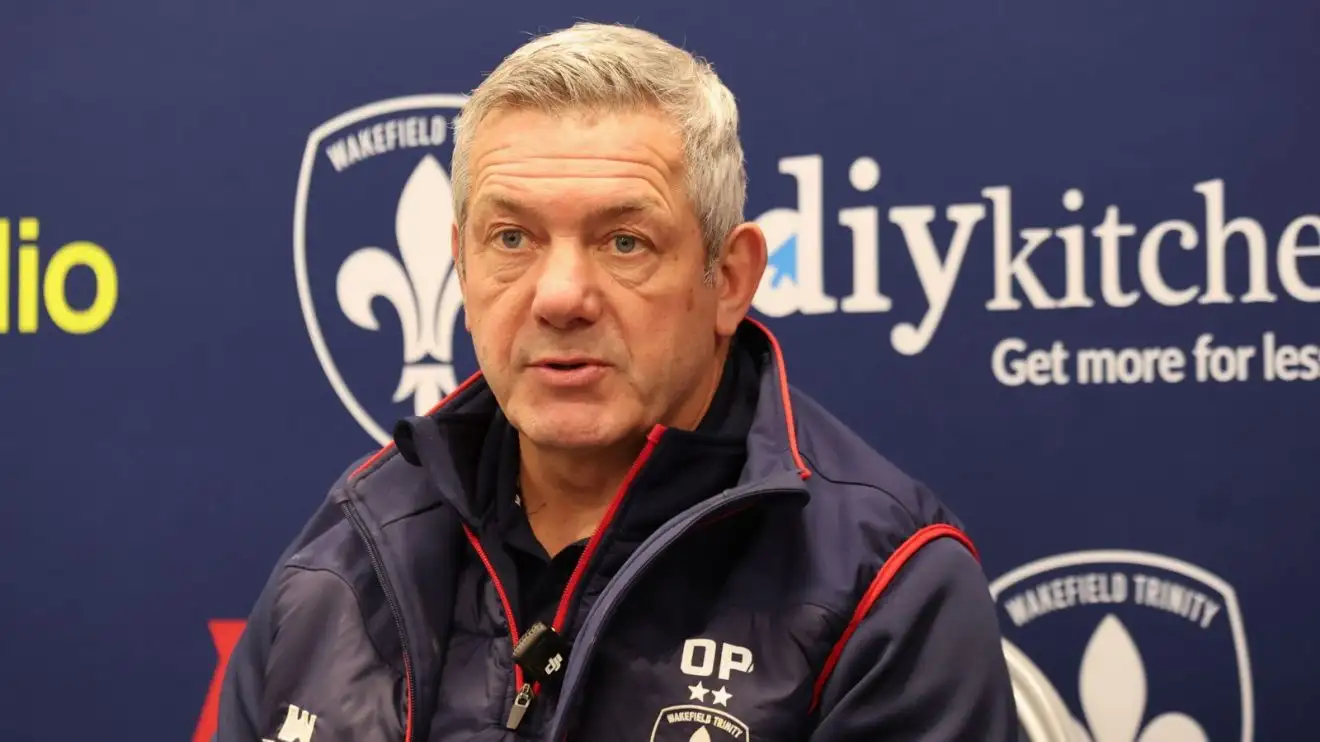Daryl Powell Calls for Super League to Adopt NRL’s Video Referee System Amid Growing Frustrations
Wakefield Trinity head coach Daryl Powell has called on the Super League to revamp its video refereeing system, suggesting that the league should follow the NRL’s approach to reduce frustrating delays in decision-making.
Powell voiced his concerns following Wakefield’s commanding 40-12 victory over Leigh Leopards on Friday night. Despite securing another impressive win on the road, Powell couldn’t hide his frustration over the lengthy delays caused by the video referee process, particularly one decision right before halftime that confused both players and spectators.
Calls for a Faster and More Efficient System
During the match, Chris Kendall, the video referee on duty, was called in to review a Wakefield try just before the break. Initially, the on-field referee Marcus Griffiths had awarded the try, but the stadium screen appeared to signal a reversal, leading players from both teams to prepare for a restart. However, after further review, the try was ultimately confirmed, leaving many bewildered by the drawn-out process.
Reflecting on the situation, Powell said:
“I spoke to Phil Bentham during the week, and the reality is that the game doesn’t have enough money to invest in the same technology as football or the NRL. That being said, we still need to improve the process.”
Powell pointed to the NRL’s system, where referees award a try or deny it immediately, allowing the video referee to quietly review the footage in the background and only intervene if necessary. He believes this approach prevents unnecessary delays and maintains the flow of the game.
“Twice today, the decision looked like it had been made, only for the review to continue. It’s frustrating for everyone involved,” Powell added. “We understand the referees have a difficult job, but more investment in technology would certainly help.”
Should Super League Copy the NRL?
Powell argued that the NRL’s approach creates a more natural experience for both players and fans. In the Australian league, the video referee acts independently rather than waiting for the on-field referee’s signal. If an error is detected, they notify the match official before play resumes, preventing unnecessary stoppages.
“I think it’s something we should seriously consider,” Powell said. “Referees are already making calls on the field, so why not let them do that and have the video referee correct anything in the background?”
Powell also pointed out that while some elements of Super League have been adopted by Australia, there are lessons that could be learned from the NRL as well.
“There are things Australia takes from us, and there are things we should take from them. This should be one of them.”
However, he acknowledged that technology and financial limitations could be barriers to immediate change.
“It might be too difficult given the resources we have, but it should definitely be something we look at,” Powell concluded.
With growing frustration among players, coaches, and fans alike, the debate over Super League’s video referee process is unlikely to die down anytime soon. Whether officials will consider Powell’s suggestion remains to be seen, but one thing is clear—the current system is in desperate need of improvement.
